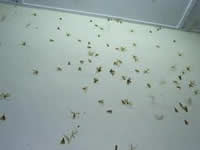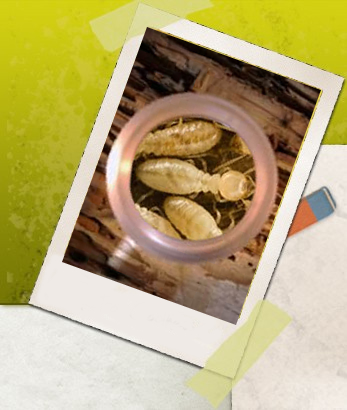Pest Inspectors CT: Termite Swarmers
 Pest Inspectors CT: The termite swarm season is upon us. Thousands of CT households will be horrified by the sight of small, winged insects emerging from living room carpets or cracks between walls and tiled floors.
Pest Inspectors CT: The termite swarm season is upon us. Thousands of CT households will be horrified by the sight of small, winged insects emerging from living room carpets or cracks between walls and tiled floors.
Termites are small, white, tan, or black insects that live in large nests or colonies. Individual “castes” of insects within the colony vary in appearance and perform different jobs, much like other social insects such as ants. The large queen lays the eggs, sometimes thousands in a single day.
She is always accompanied by a king. Soldier termites typically have large heads with powerful jaws used to fend off their enemies—usually ants. The workers, who tend the queen, build the nest and forage for food make up the majority of the termites in the colony. Many types of termites have long lifespans: queens and kings can live for decades; workers for several years.
Termites belong to an ancient order of insects, Isoptera, that has been in existence more than 100 million years. While CT Residents think of them mainly as a destructive force, in fact termites make positive contributions to the ecosystem by breaking down and recycling wood and plant materials and aerating the soil.
When they move into our houses and buildings, termites are very destructive. Termite infestation results in some $2 billion worth of damage each year in the United States alone which is why pest inspections are so important. Because they feed on wood, they can cause serious damage to our homes, apartments, commercial buildings or outbuildings such as barns or sheds, even to structures such as wooden mailbox posts or light poles, which is why annual pest inspections by a licensed pest inspector are so important.
Subterranean termites live in the soil, sometimes several feet below ground, and must have moisture to survive. They stay in contact with the soil by building hollow tunnels, or shelter tubes, from dirt, wood or drywall particles, about the diameter of a pencil.
Often homeowners like our customer discover they have a termite pest problem when they discover a swarm, which usually happens in spring or fall when the termites pests are ready to reproduce. Other signs of termite infestation are the presence of mud shelter tunnels on walls, dark or blistered wood, or areas of thin, easily broken wood.
Termite pest infestations are difficult if not impossible to control with do-it-yourself methods. New technologies are extremely effective at eradicating termites and preventing reinfestation.
Call for a Pest Inspector to Inspect your CT home today 888-558-1574
Contact our pest inspectors to learn more about pest inspections in CT or to receive treatment options and information.

